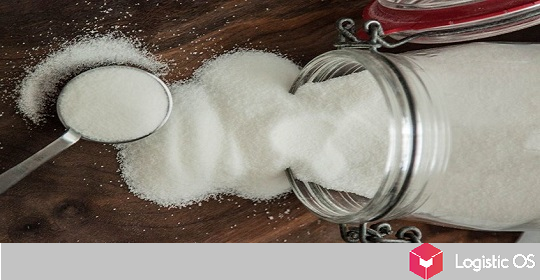An analysis of the consequences of the coronavirus pandemic reveals new problems that have not yet become catastrophic.
As you know, in Russia there is a intervention fund , the main task of which is to prevent sharp jumps in wheat prices, due to its oversupply or shortage.
Such a policy is aimed, first of all, at stimulating production in those regions where lowering the price reduces the economic efficiency of increasing production, as well as at maintaining the market price.
In simple terms, when the price of grain in the market drops sharply, the fund buys grain in order to remove “surplus” from the market, and when it rises, it sells it.
The intervention mechanism has been launched in Russia since 2001.
The state agent of the inventory fund is the United Grain Company (OZK).
This year, at the time of the start of interventions (April 14, 2020), the grain fund was a little more than 1.75 million tons .
As a result of the sharp increase in demand for wheat at the beginning of the pandemic, the fund began to sell grain.
During the intervention (as of June 4, 2020) 1.36 million tons of grain were sold on the exchange.
It is easy to calculate that the balance of the fund has reached a critical mark of 390 tons of grain, and this despite the fact that only flour mills consume almost three times more per month: approximately 1.1 million tons
In addition, the reserve grain goes to livestock feed.
In order to avoid “drawdowns” in the intervention fund in the event of situations like the coronavirus epidemic, OZK, together with the Ministry of Agriculture, proposed to increase its volume to 6 million tons within three years.
In addition, the ministry proposed to the President of Russia to additionally create a stabilization fund on the basis of the intervention fund, the state agent of which will also be OZK.
Its categorical difference will be that its stocks will be intended only for flour mills: so that in possible periods of instability and rush demand, they can produce bread, which is a strategic product for the population, at an affordable price.
Apparently, the concern of the governing structures is also associated with a decrease in harvest forecasts: so far the forecast bar for the total harvest of crops has decreased from 125.3 million tons to 120 million tons.
To maximize the protection of crops from the effects of weather conditions, farmers significantly increased the import of plant protection products: from January to March 20.4% of such funds were imported compared to the same period last year. Total purchases totaled $ 285 million.

It would seem that the logical measures of the government and departments to increase the volume of the intervention fund and the creation of a stabilization fund caused a heated discussion among grain exporters.
According to experts, the fund’s volume of 6 million tons is critically overstated: 2.5 million tons is enough to maintain commodity independence within the country.
They also believe that the creation of a new fund will not be so effective, it is enough to restructure the existing one.
The larger the volume of the fund, the more money is spent on its acquisition, storage, insurance, safety check, until it becomes necessary to use it.
But the main concern of market participants is that the seizure of significant volumes of grain, together with possible further quotas, could lead to the loss of a significant number of partners and undermine Russia’s position in the world market.
Finding a new supplier to importers will not be a big problem. And this was very clearly shown by the past tender for the purchase of wheat by Egypt, when the contract was concluded with Ukrainian producers.
And at the next tender, Russia had to agree to unfavorable conditions — a delay in payment. Other exporters did not consider such an offer and did not enter the tender.
As a result of ongoing reforms, Russia may lose a significant share in the global market.
And the motivation of farmers is significantly weakened.

According to the analytic platform Logistic OS , an unprecedented drop in exports was recorded in June.

